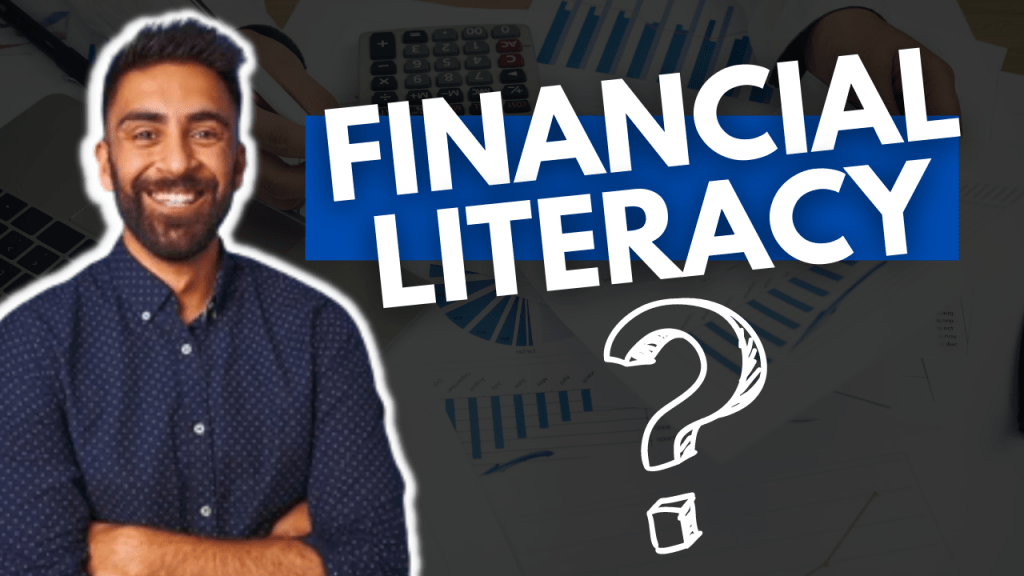
Why financial literacy is important in Srilanka
How well do you understand personal finance? If you’re like most people, probably not as well as you should.
A lack of financial literacy can put you at risk of making poor spending decisions, leading to more debt and fewer savings over time.
But there are plenty of ways to improve your financial knowledge to avoid these pitfalls. Here are tips on what financial literacy means and how you can increase yours today!
- What is financial literacy?
- Why financial literacy matters
- Ways to Improve your financial literacy
- Types of personal finance you need to know about
- Common budgeting mistakes you should avoid
Let’s understand each topic now,
What is financial literacy
Financial literacy, or financial education, refers to your understanding of how personal finance works. If you’re financially literate, it means you have a basic grasp of what saving money and spending money means in day-to-day life.
Financial literacy can be thought of as an umbrella term that covers financial knowledge, financial numeracy and economic literacy. In other words, there are several elements to financial literacy.
Financial literacy isn’t something you’re born with—it’s something you learn over time through experience, conversations with others and by educating yourself on financial topics.
Everyone has room for improvement when it comes to financial education, even if they work in banking or finance!
The good news is that improving your financial literacy doesn’t require taking years of classes at a university—it just requires some self-reflection and research.
Why financial literacy matters
Financial literacy matters because it’s one of those skills that can, quite literally, make or break your life.
If you’re financially literate, you know how to responsibly manage your money so that you can buy what you need and save for what you want while avoiding credit card debt and bad financial products.
On the other hand, if you don’t understand basic financial concepts—like how compound interest works or why it matters—you might end up worse off than if you had never started saving in the first place.
When it comes to money, ignorance is expensive! So take some time to learn more about these important issues.
One great place to start is our Article page on personal finance basics. From there, we recommend reading through a variety of blogs and articles to get a feel for different perspectives on how to handle your finances wisely.
You may even find an inspiring story or two along the way. Remember: knowledge is power when it comes to managing your finances well!
Ways to Improve your financial literacy
We’ve all heard of financial literacy, but how many of us can actually define it? In a nutshell, financial education is understanding and being able to apply basic concepts in personal finance.
It covers everything from managing your money to credit scores to retirement planning.
Financial literacy has become a hot topic these days because it affects nearly every aspect of our lives, from daily expenses to saving for big purchases like homes and cars.
While most schools don’t offer financial education classes at every grade level anymore, most high schools do have some type of financial planning or budgeting course students can take.
And if your school doesn’t have like most schools, there are several other options for developing better money management skills
While most schools don’t offer financial education classes at every grade, most universities do have some type of financial planning or budgeting course students can take.
And if your school doesn’t have like most schools, there are several other options for developing better money management skills
You can read financial articles. Watch free youtube videos or if you are very serious about managing your finances you can try paid online classes or courses from skilled people in that sector.
But believe me, you can develop all the essential things you should know those the internet for absolutely free. So don’t seek to burn money first. Try to leverage the free resources
Types of personal finance you need to know about
Personal finance is a complex topic. To make things easier, there are different categories of financial education you should be aware of.
But before we dive into these topics, it’s helpful to know that personal finance contains two main principles: budgeting and saving.
Budgeting refers to prioritizing what you spend your money on while saving helps ensure you have enough money when an emergency strikes (or retirement approaches).
Both play major roles in long-term financial health and it’s important to understand them before moving on to other facts of personal finance.
The four basic types of personal finance include:
1) Savings – Saving for emergencies or big purchases.
2) Investing – Investing involves buying stocks, bonds or mutual funds to make more money down the road.
3) Debt management – Paying off debt like student loans, bank loans or credit cards by reducing interest rates or increasing monthly payments.
4) Retirement planning – Saving for your golden years. It’s never too early to start thinking about retirement planning—even if you’re in your 20s!
Common financial mistakes you should avoid
There are lots of financial mistakes people make and it’s important to avoid these.
Mistakes, like not paying bills on time, maxing out your credit cards, or even failing to set a budget in place, can be a set of them.
On the other hand, falling for financial scams, Investing mistakes which are more popular and common today.
It might seem odd but one study revealed that people who don’t set financial goals often feel overwhelmed when it comes to managing their finances and because of that they usually fail to plan properly as well.
If you haven’t taken steps towards setting goals yet then now would be a good time to do so.
You can always start small by just making a list of things you want to achieve financially over time.
Also, consider tracking your spending habits which will allow you to see where money is going and how much it costs. You should know exactly what you spend each month for instance: rent/mortgage, food, transportation, utilities etc. This will help you decide where cuts need to be made if necessary.
